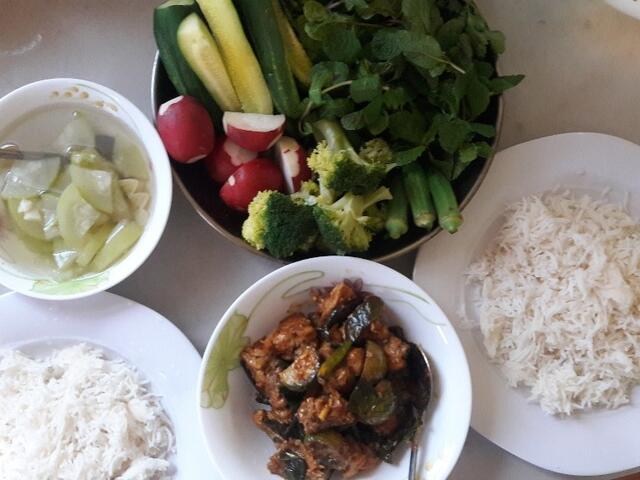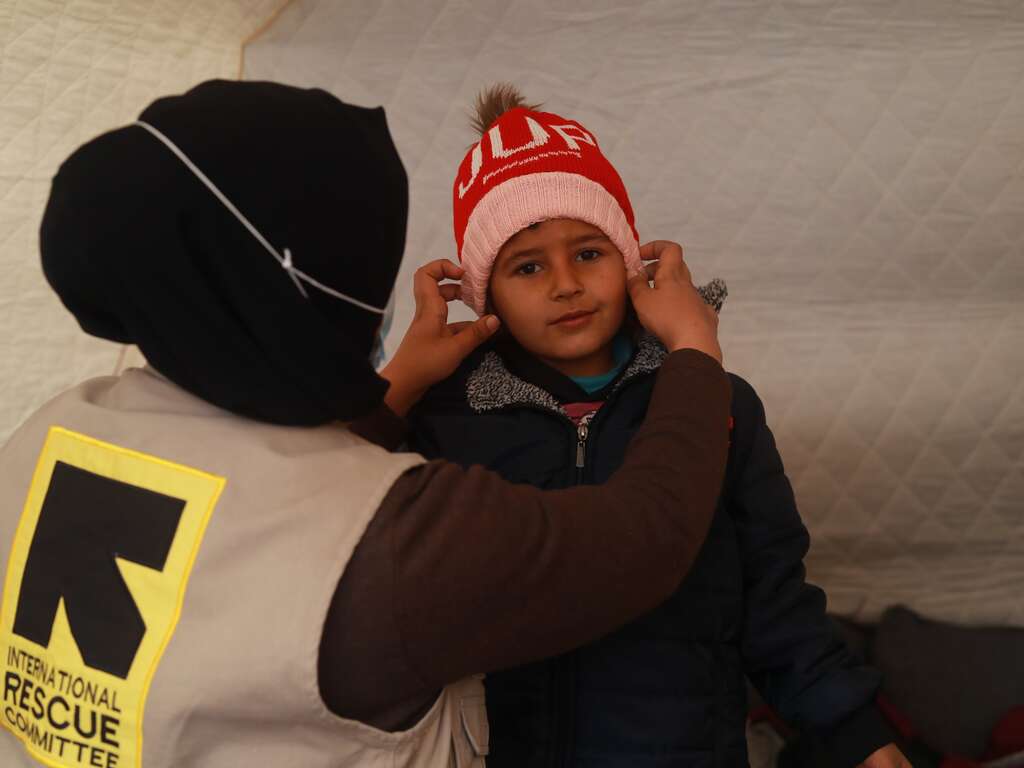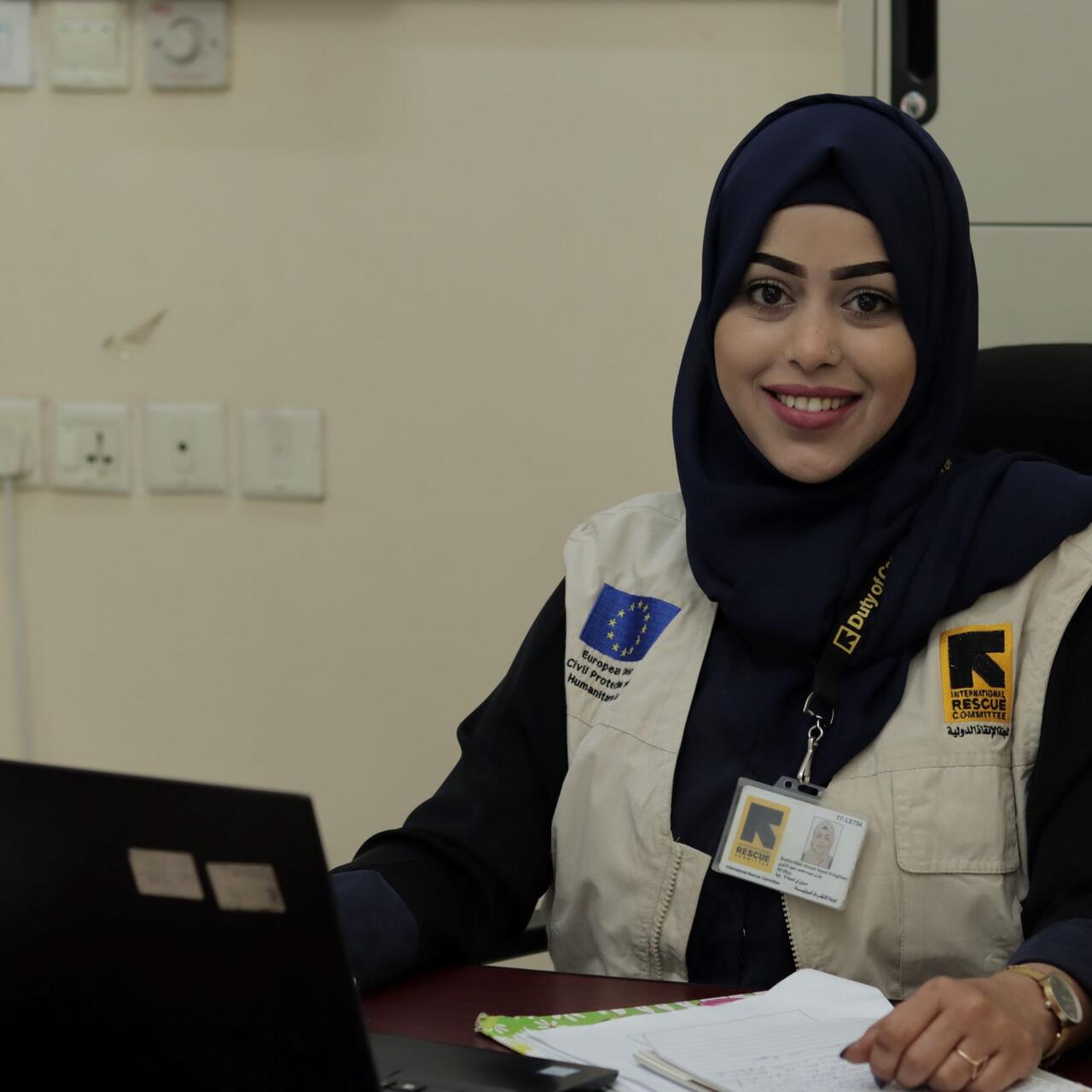
It’s no small feat to be a woman in Yemen living without your family. Bring into the mix managing eight mobile health teams and several health facilities in one of the most remote areas in the world and helping women give birth during a global pandemic, and you start to understand just how extraordinary 27-year-old Dr Bushra Al-Aghbari is.
“Other doctors told me that ‘Bushra, you are freshly graduated, you can’t cope with all this’,” she says, explaining her decision to move away from her family home to a rural area in Yemen, where basic necessities are scant. “But all this talk was just encouragement. It motivated me to challenge myself, because I have a goal to help the women in these areas.”
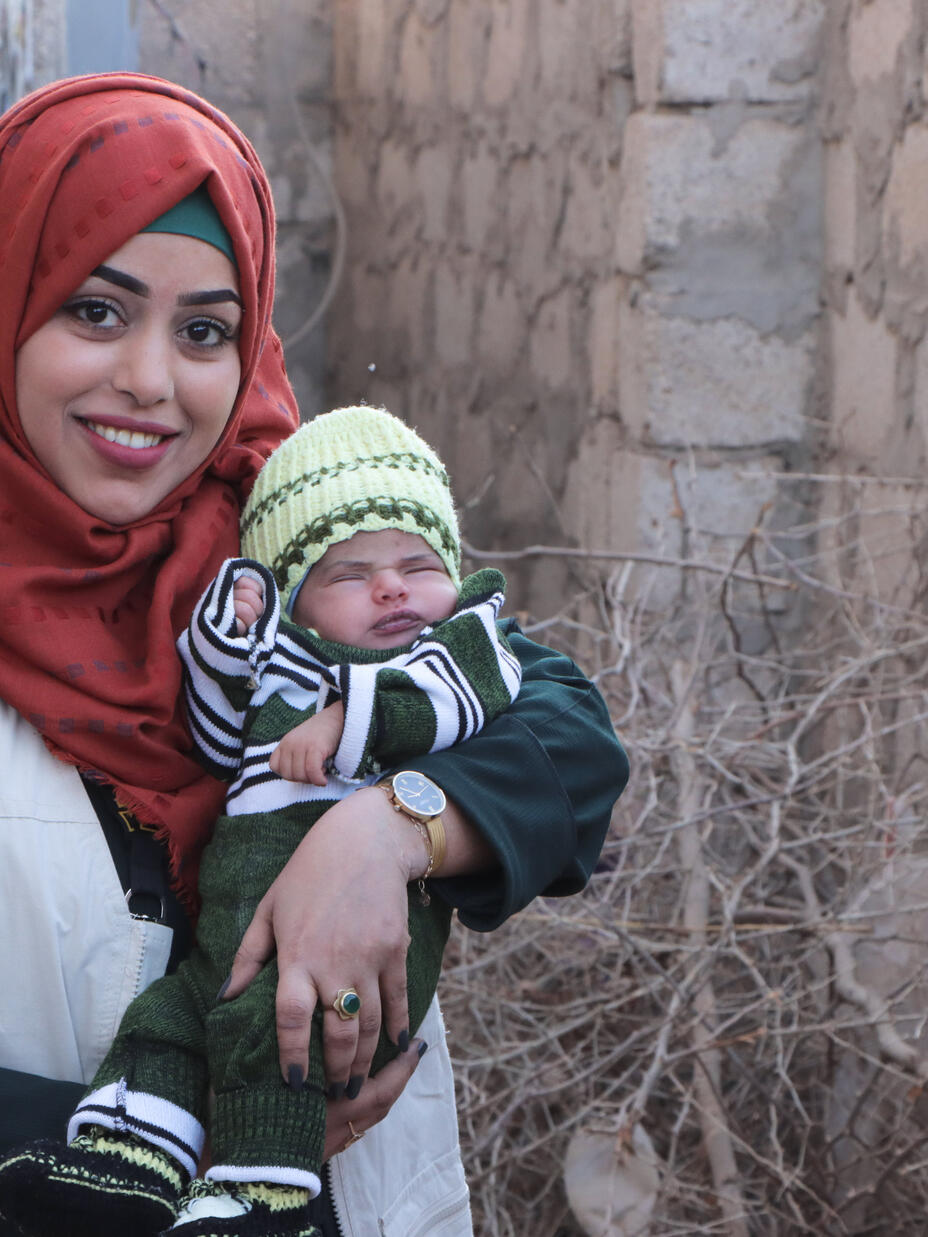
Bushra has been a Reproductive Health Officer with the International Rescue Committee since 2019. She manages EU-funded mobile medical units that drive out into the mountains visiting camps, settlements and villages. Her team of healthcare workers provide pregnant women and babies vital support in areas where they wouldn’t otherwise have access to healthcare.
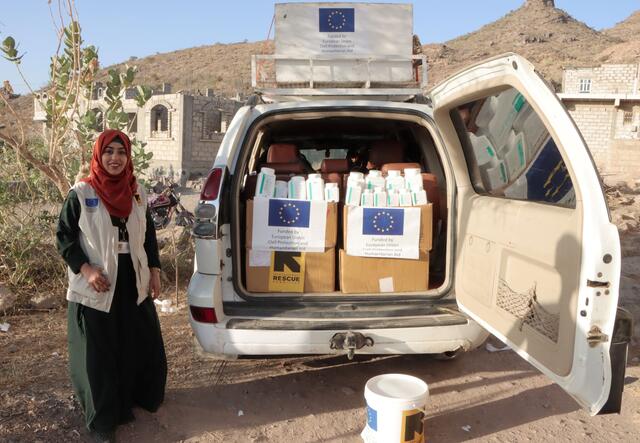
“Our traditions and customs have prevented women from going to male doctors,” she says, explaining the barriers women in rural communities face. “So even when they’re in need, they don’t go, and just suffer at home. Women tend to be depressed because of the unstable situation and fear what’s coming next.”
Having entered its seventh year of conflict, Yemen faces a multitude of humanitarian disasters. Price hikes, a shortage of fuel and food, lack of adequate healthcare services and continued fighting have devastated its population, with the risk of widespread famine currently at its peak.
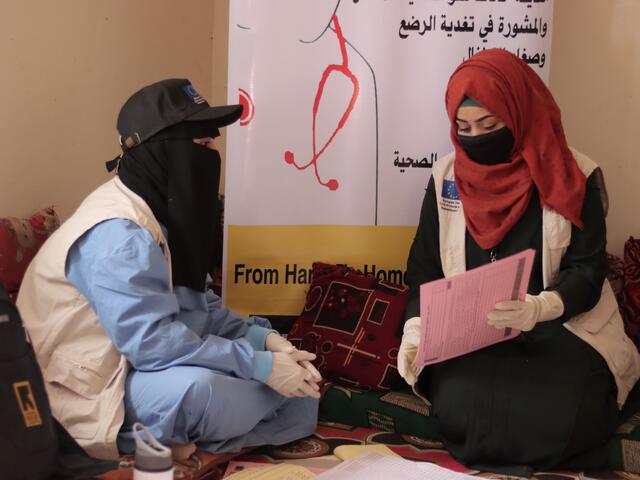
The outbreak of COVID-19 in Yemen only served to amplify these feelings of uncertainty. At the peak of the outbreak in 2020, hospitals had begun to deny patients in hopes of reducing the spread of the virus. “Many women were wondering where to deliver their babies and how to protect themselves,” explains Bushra. Using WhatsApp, Bushra created a group together with her fellow midwives and doctors, to keep in contact with her patients.
Using this group, she was able to follow up with them, arrange individual consultations, and keep them up to date on which hospitals would accept them - offering them a necessary outlet to seek help, during a particularly turbulent time.
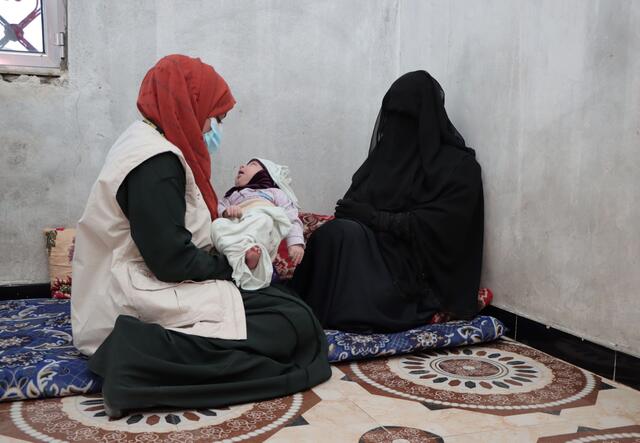
Despite the challenging context in which she works, Bushra’s resolve to help the people around her remains strong. “I consider each day as a new chance for life,” she says.
Her journey as a humanitarian began in 2018, when she started working in the hospital nearest to her house. There, she began helping those who were injured during the conflict, gaining valuable experience from her fellow doctors, nurses and midwives. After she graduated from medical school, she decided to move to a rural village in Al-Dhale’e, located in southwestern Yemen.
“It was a transformative point in my life,” she says, recalling her decision. “Because it’s not like a city. You don’t have good access to basic services such as the internet, or electricity. Even my family refused at first. But I knew that the women there needed help. They suffer, and no one knows about them. They live away from hospitals and need someone to help them, so I moved closer to them. That experience created a new Bushra.”
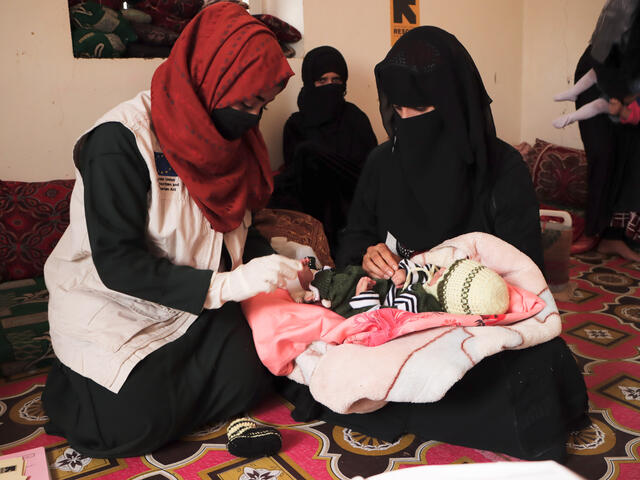
Her family is supportive of her work, and regularly offers her words of encouragement to keep her spirits high when she feels lonely. “My dad always calls me, telling me I am strong and brave,” says Bushra. “My mom also sends me the cookies and chocolate I miss from Aden, because I can’t find them in Al-Dhale’e.”
Even through all these hurdles, Bushra finds joy in her work as a humanitarian. “The moment I reach home after a long day at work and put my head on my pillow, I remember the appreciation in people’s eyes when I’ve helped them,” she says. “Those are the moments I feel most proud of.”
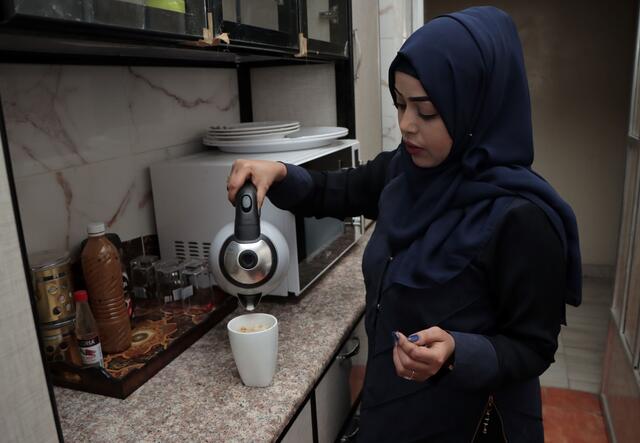
Having grown up in a society where women face harsher obstacles than men, Bushra’s perseverance stands out. “Being a woman is not just to be strong and stand up for myself, but to stand up for everybody else who needs me,” she says, a firm look in her eyes.
Having boldly defied the very societal norms designed to hold her back, she shares some wise words for girls hoping to embark on a similar journey. “My advice for young girls is to have strong faith in themselves,” she says. “Women who break down barriers are those who ignore limits."
